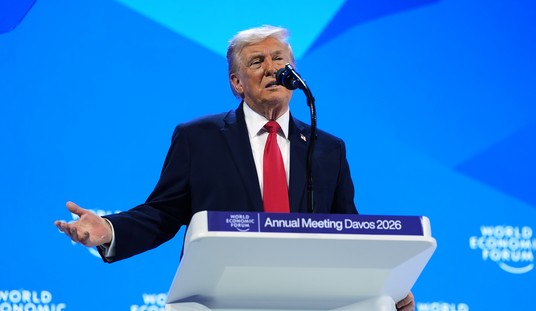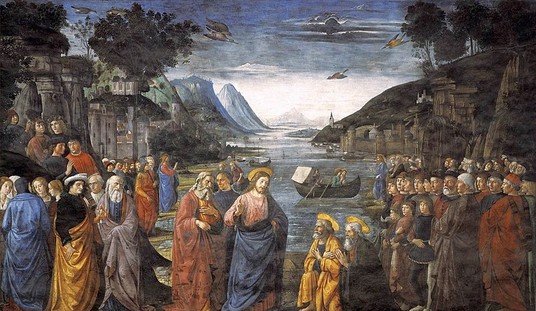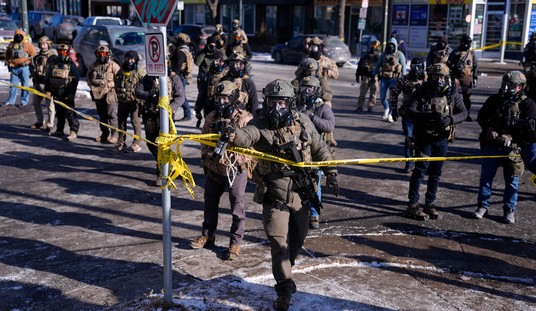It’s difficult to make sense out of the foreign policy coming out of the White House under Barack Obama. On the one hand, Obama insisted that he could not interfere with the internal politics of the “sovereign government of Iran,” refusing for days to even condemn Iran for its flagrantly violent repression of dissent. When Honduras’ military staged a coup, though, Obama apparently had no such reticence in involving the US on behalf of deposed President Manuel Zelaya — a close ally of Hugo Chavez:
In an unusual concurrence of views, the Obama administration and Venezuelan President Hugo Chavez said they still recognized Mr. Zelaya as Honduras’ president. The State Department called the events an “attempted coup” and urged Mr. Zelaya’s “return and restoration of democratic order.”
U.S. officials said they were engaged in multinational efforts to resolve the crisis, through the Organization of American States and European allies. At the same time, Washington wants a resolution “free from external influence and interference,” a senior official told reporters during a conference call organized by the State Department.
The official, who spoke on the condition that he not be named, said the U.S. Embassy in Honduras was “consistently and almost constantly engaged in the last several weeks working with partners” and that U.S. officials were “in contact with all Honduran institutions, including the military.” However, the military stopped taking the embassy’s calls since the coup attempt, the official said.
The Wall Street Journal also reports Obama’s eagerness to “interfere”:
The Obama administration and members of the Organization of American States had worked for weeks to try to avert any moves to overthrow President Zelaya, said senior U.S. officials. Washington’s ambassador to Honduras, Hugo Llorens, sought to facilitate a dialogue between the president’s office, the Honduran parliament and the military.
The efforts accelerated over the weekend, as Washington grew increasingly alarmed. “The players decided, in the end, not to listen to our message,” said one U.S. official involved in the diplomacy. On Sunday, the U.S. embassy here tried repeatedly to contact the Honduran military directly, but was rebuffed. Washington called the removal of President Zelaya a coup and said it wouldn’t recognize any other leader.
The U.S. stand was unpopular with Honduran deputies. One congressman, Toribio Aguilera, got prolonged applause from his colleagues when he urged the U.S. ambassador to reconsider. Mr. Aguilera said the U.S. didn’t understand the danger that Mr. Zelaya and his friendships with Mr. Chavez and Cuba’s Fidel Castro posed.
Zelaya was violating his country’s constitution with his referendum that would have, Chavez-style, repealed term limits on the presidency. The Honduras Supreme Court ruled the referendum illegal, and the military refused to distribute the ballots. Instead of backing down, Zelaya fired the head of the military, which precipitated the ouster.
Clearly, democracies cannot abide armed overthrow of elected governments, but that presumes that the government acts within the rule of law. Zelaya had no intention of doing so, and his flagrant violations and attempt to accrue personal power made that crystal clear. Zelaya had begun seizing dictatorial powers, and the military responded by arresting him. The military then handed power back to the legislature rather than keeping it for themselves, which makes this less of a coup and more of a military impeachment.
Why did Obama decide to intervene on behalf of a “president” obviously abusing his power and to prevent the military from removing him once he started acting like a dictator? He didn’t put nearly that much effort into assisting Iranians who have gone into the streets and died to protest the mullahcracy that oppresses them. Rick Moran thinks that’s a pretty good question as well:
Further, the military was acting under the orders of the Honduran Supreme Court although they apparently exceeded their authority by whisking him away to Venezuela. And finally, it was Zelaya’s actions in violating the constitution, ignoring a ruling by the Supreme Court that any referendum be put on would be illegal, and the universal belief in Congress, the military, and much of the populace that eventually, he would little more than a stand in for Chavez if he was allowed to carry out his illegal referendum that sealed Zelaya’s fate.
And yet our president, acting contrary to American interests, chose the route of least resistance and condemned what many Hondurans believe was a restoration of constitutional order. The president will find himself in familiar territory with this condemnation – Castro, Ortega, and other Latin American leftist thugs also condemned the coup. Maybe someone could look it up but when was the last time we were on the same side with Cuba on any international issue?
Way to go Barry. Like, we should listen to the Castros when they complain about democratic procedure not being followed? …
In fact, after swearing off “interferring” in Iran where demonstrators were getting shot, beaten, and axed to death, our clueless Chief Hypocrite worked frantically behind the scenes to save Honduran President Zelaya’s job, thus [interfering] on the wrong side while making himself out a liar on Iran.
We’re getting a close look at Obama’s priorities, and they’re hideously out of step with democracy and the rule of law.
Update: The controversy now is whether this is a coup or a lawful action on behalf of the Honduras legislature and courts. Fausta has gone on record saying it’s not a coup, as the military responded to a request from the legislature and courts to remove Zelaya. I tend to agree with Larisa Alexandrovna on this point, though:
As noted here (in Spanish), the Honduran Congress cited repeated violations of the Honduran Constitution by President Manuel Zelaya and voted for his removal. That said, as I noted earlier, he is both a bad guy and a good guy. This is a complex political environment in a very unstable part of the world.
The right sees this as a simple restoration of democracy. Yet the use of military personnel to detain, arrest, and transport a sitting president to another country against his will is not part of any democratic process that I am aware of. They do have courts in Honduras and a legal system. This is a coup, despite the passions of the right-wing. They also have law enforcement. Anytime the military becomes involved, it is not as simple as impeachment by Congressional edict through military force. Shorter=coup.
Had the military arrested and detained Zelaya in advance of an impeachment action and/or criminal prosecution, then I could go with the not-a-coup argument. Dumping him outside of the country is not exactly a due-process removal — and I think that falls into the yes-it’s-a-coup territory. Perhaps necessary, perhaps very supportable, but it’s obviously an extralegal removal, which is the very definition of a coup.







Join the conversation as a VIP Member